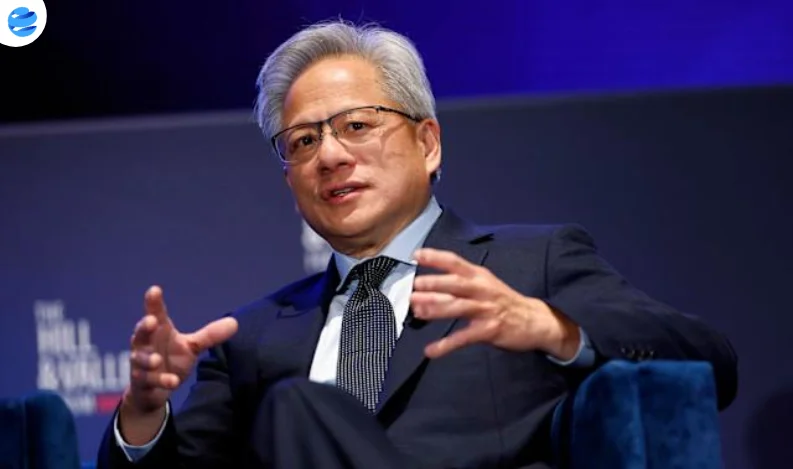Nvidia CEO Jensen Huang cautioned on Wednesday that China is not lagging behind the United States in artificial intelligence (AI) development, adding that the gap between the two countries is narrowing.
Speaking at a tech conference in Washington, D.C., Huang acknowledged that while China may currently be slightly behind the U.S. in AI, the difference is small. "China is right behind us," Huang said, stressing that AI is a long-term, infinite race between global tech powers. "We are very close," he continued, underscoring the ongoing competition in AI advancement.
Huawei's Technological Power
Huang also took the opportunity to praise Huawei, the Chinese telecommunications giant, calling it "one of the most formidable technology companies in the world." He noted Huawei's significant strides in computing and network technology, vital components for AI progress. "They have made enormous progress in the last several years," Huang remarked, highlighting Huawei's growing role in the tech landscape.
The remarks come as Nvidia continues to play a crucial role in the development of AI, with its chips powering much of the advanced AI applications seen globally. However, the company is facing mounting challenges, including export restrictions and tariffs. The Biden administration's ongoing regulatory efforts may further limit the shipment of Nvidia’s most advanced chips, including those used in AI development.
Trade Restrictions and AI Chips
Earlier this month, the Trump administration imposed restrictions on the export of Nvidia's H20 chips to China, requiring a license for shipment. This new restriction is expected to cost Nvidia $5.5 billion. The company has made it clear that such policies could undermine U.S. leadership in AI by limiting competition in the global market.
In response, Huang argued that U.S. policy should prioritize enhancing the competitiveness of American companies. He warned that restricting the sale of AI chips to China and other countries could hurt the U.S.'s technological edge in the long run. "This is an industry that we will have to compete for," Huang stated, underscoring the importance of fostering innovation at home.
Nvidia’s Commitment to U.S. Manufacturing
Amidst these challenges, Huang expressed optimism about Nvidia's ability to manufacture its AI devices domestically. Nvidia recently announced plans to build $500 billion in AI infrastructure in the U.S. over the next five years. The company also revealed plans to assemble AI servers in partnership with Foxconn near Houston, Texas.
Huang emphasized that with the right resources and determination, Nvidia could successfully establish a robust onshore manufacturing base. "With willpower and the resources of our country, I’m certain we can manufacture onshore," he said.
Stock Market Impact
Despite Nvidia's strategic moves, the company has faced a rocky start to 2025. Nvidia’s shares have fallen by more than 20% this year, after experiencing nearly a threefold increase in value in 2024. On Wednesday, the stock fell almost 3%, mirroring broader market trends.
While Nvidia’s prospects remain strong in the AI sector, the company’s ability to navigate regulatory and market challenges will play a pivotal role in shaping its future growth.























